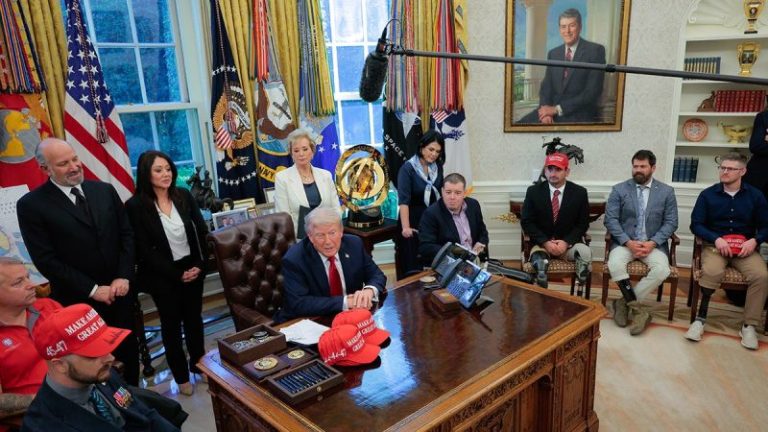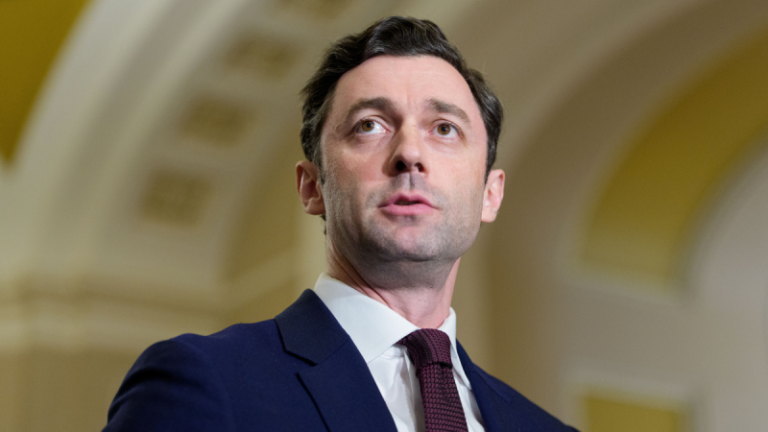January 2026 marks one year into President Donald Trump’s second term, and there can be no honest conversation without acknowledging that he is one of the most consequential presidents in American history. Love him or loathe him, Trump remains the fixed star around which our politics has revolved for the better part of a decade. Every debate, whether on leadership, law, legacy or lack thereof, turns on the outsized presence of one man. His shadow looms across every institution sacred to America, from colleges to the church to the Capitol, forcing each to declare with whom it stands and why.
Trump has not simply challenged institutions; he has recharted their course. He has created a political environment where presence, leverage and speed prevail — conditions future leaders will inherit whether they admire his legacy or admonish it. What matters now is not merely what Trump disrupted, but what he set in motion. Among other things, Trump reminds us how quickly and how personally a single executive can impact law, markets and society, for better or worse.
Long after the rallies fade and the indictments recede, Trump’s imprint will continue to shape American life. A remade Supreme Court of hand-picked justices has altered constitutional doctrine for generations to come. Capital markets have come to treat presidential volatility as a warning sign and tradable risk. Tariffs, trade and industrial policy have been recast as blunt instruments of executive will, designed to serve voters as much as economists. Even the once-fringe world of digital assets and crypto has been reframed from libertarian experiment to strategic asset class challenging sovereignty, regulation and power.
In many other ways, Trump has altered expectations as much as outcomes. He mandated institutions to move faster and challenged political actors to think bigger. That inheritance will not be easily unwound. History’s students of power understand that consequence is measured not only by outcomes, but by what follows, and few made that point more clearly than Henry Kissinger. ‘Trump may be one of those figures in history who appears from time to time to mark the end of an era and to force it to give up its old pretenses.’
More than anyone else, Trump recognizes that power today flows not only from institutions but from attention. From the time he entered the arena, Trump has perfected one principle: never surrender the stage. Pundits once mocked his early bid for office as self-promotion. It became a populist revolt instead. His blunt voice pierces decades of polite debate. While Washington was accustomed to civility, his words are often raw, sometimes reckless, but always real. Trump’s mastery of attention strains conventional guardrails and has exposed institutional rot long ignored. He leverages disruption to push the boundaries of trust and normalize chaos, conflict and controversy.
The Trump presidency breaks precedent almost daily — so often it is futile to flag and hard to keep score. He confronts China’s mercantilism with tariffs when others fear retaliation. He moved the U.S. Embassy to Jerusalem, upending decades of diplomatic orthodoxy. He stepped across the DMZ to meet North Korean leader Kim Jong Un and rolled out the red carpet for Russian President Vladimir Putin. He bombs Venezuelan speed boats presumed to carry contraband and dares the reigning despot to respond, let alone retaliate. And he brusquely deports the undocumented with steely bravado. All of which would have been derided or thought folly not long ago, but now is political reality.
Supporters see courage; opponents see chaos. Two things can be true. Trump leads by instinct, improvising his own score to the established symphony of power. Policy wonks measure process; his allies measure presence. Rallies replaced town halls. Tweets replaced press conferences. Identity replaced ideology. To millions who felt unseen, he proved they exist. He showed up, stood up and spoke up in a way American presidents never have, and may never again.
Every scandal was forecast as fatal. None has been. Each prosecution, revelation and rebuke only deepened the myth. His mug shot became merchandise, his trials became theater, his adversaries became amplifiers. History honors endurance as much as elegance, if not more. Trump embodies that fact. Cast down, counted out and condemned by critics, his ascendance reflects the character of a long ignored American electorate — disruptive, defiant, determined to be seen.
Grave legal and ethical questions have dogged the president to be sure. But the paradox persists: efforts to diminish Trump through lawfare have mostly enlarged and emboldened him politically and prompted questions as to whether prosecution has advanced justice or accelerated division.
Washington still misunderstands the Trump phenomenon. He thrives on friction, force and fear. Attention is both fuel and fortress. While pundits count approval ratings, he commandeers airtime. Flooding the zone is more than a football play; it is a governing philosophy for Trump, who understands that in today’s politics, silence equals extinction. The simple act of tagging opponents with amusingly accurate nicknames bespeaks both instinct and popular appeal; at the same time brilliant and brutal.
Populism in America is cyclical. President Andrew Jackson fought banks; politician William Jennings Bryan fought barons; Louisiana Gov. and then Sen. Huey Long fought inequality; Trump fights systems of every stripe. His crusade is part grievance and part gospel, speaking to a republic that distrusts its own elite institutions and their caretakers. Trump excels at stretching politics into follow-through performance. After all, who else would dare prepend his name to the John F. Kennedy Center for Performing Arts and the U.S. Institute of Peace in real time.
Foreign-policy mandarins dismiss his unorthodox diplomacy, yet the Abraham Accords reordered alliances few believed possible. Energy independence became a reality under his watch. Europe, once warned about Russian gas dependency, now concedes he was right. NATO member states shoulder greater — though not altogether equitable — burdens. Even critics grudgingly credit him for forcing movement on issues long considered intractable, thus the Nobel nominations.
American politics has long relished showmanship and public performance, from Jefferson’s pamphlets to Lincoln’s debates. Trump is the latest iteration of that tradition, and the most complete legacy of the social media age. He channels a culture that values performance as proof of conviction. As such, he reflects some of our own national contradictions: moral yet mercenary, religious yet rebellious, democratic yet drawn to dominance.
Scholars will debate Trump’s impact for decades, but his ubiquity is unquestionable. He imbues every poll, every platform, every party calculus. Democrats campaign against him; Republicans campaign around him. He remains bolder and busier than ever. Trump did not just reform the GOP; he broke the mold and recast it as Trump, MAGA and America First.
Every scandal was forecast as fatal. None has been. Each prosecution, revelation and rebuke only deepened the myth. His mug shot became merchandise, his trials became theater, his adversaries became amplifiers.
Trump’s evangelical supporters remind us that the great men of old were seldom polished and never perfect. Moses killed, yet led his people to freedom. David sinned, yet ruled with vision. Paul persecuted, yet became the greatest apostle. Scripture teaches that imperfection often precedes purpose, and greatness is rarely graceful. The Christian faithful rely on these proverbial lessons when explaining their loyal and unapologetic allegiance to such a coarse Christian. Unlike Elijah, it will be impossible to take up his mantle.
While canonizing Trump would be a stretch, dismissing him would be dishonest. From TV ownership to tariffs to trade and beyond, Trump compels America to confront convention and contradiction at the same time. He challenges America’s heritage of confidence and doubt, conviction and compassion, strength and restraint. And challenges us to rethink long-held axioms.
Sports analysts often speak of exceptionally gifted athletes as ‘generational talent’ — those who have the extraordinary ability to change the game. That is Trump.
For those hoping to walk in his shoes, there is no blueprint for replication. He ushered in a unique political reality that history must acknowledge even if it cannot be repeated. As the most consequential political figure of this century thus far, Donald Trump offers history a compelling study in transformational leadership. He is implacable, irreplaceable and impossible to ignore. There has never been, nor will there ever be, another like him.
Foremost and finally, Trump embodies a new political maxim for today’s America. If you dare to lead, you do not have to be perfect, but you must be present.










